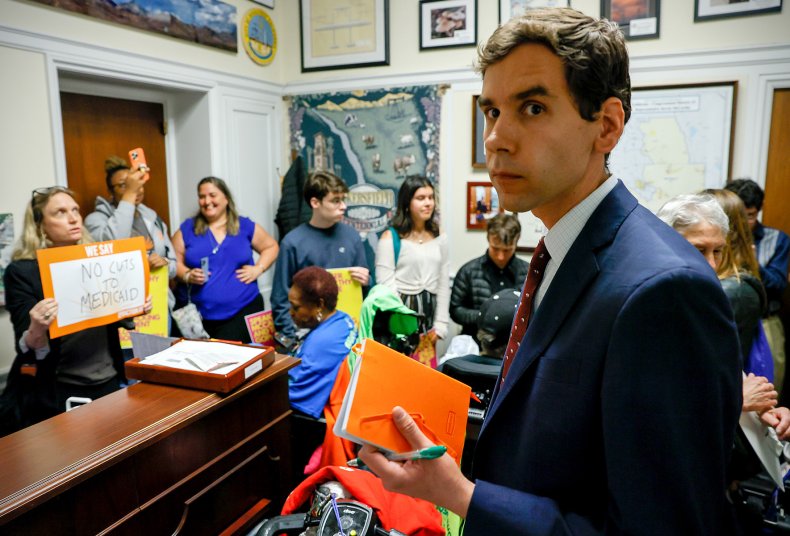The pause on federal student loan payments resulted in increased debt among borrowers who opted to pause their payments, according to a new report.
The report, which was published by researchers at the Becker Friedman Institute for Economics at the University of Chicago, found that borrowers who paused their debt payments "sharply increased mortgage, auto and credit card borrowing," compared to those who continued paying their loans.
"Borrowers subject to the payment pause ["paused borrowers"] sharply reduced payments, leading to a spike in loan balances. By the end of 2021, these paused borrowers had an additional $1,500 in outstanding student loan balances relative to those that did not see a payment stoppage," the report found. The additional $1,500 in debt was specifically for borrowers who paused payments. The report did not find additional debt for borrowers who continued payments.
The publication of the report on Tuesday comes ahead of the expected resumption of student loan payments, which was included in the debt ceiling legislation agreed to last week by House Speaker Kevin McCarthy and President Joe Biden.

Former President Donald Trump first paused student loan payments during the 2020 COVID-19 pandemic and extended it several times. Biden continued the pause on payments and also introduced a student debt forgiveness plan of up to $10,000 for some borrowers and up to $20,000 for others, depending on a borrower's income level.
However, Biden's student loan forgiveness plan is facing headwinds from Republican lawmakers and rests in the U.S. Supreme Court for a final decision on if it will proceed. The report form the Becker Friedman Institute found that Biden's student loan forgiveness plan will "show no likely impact on affected borrowers' use of credit," if it proceeds.
After the debt ceiling limit legislation was passed, Shalanda Young, director of the Office of Management and Budget, confirmed that the pause on student loan payments would end.
"The one thing is: This bill does end the payment pause. But very close to the timeframe, we were going to end it, as an administration, when it comes to repayment," Young said during a White House press briefing.
Additionally, the report this week found that: "The results indicate that debt payment pauses can increase consumption in the short term, but that overall debt increases, as borrowers use increased liquidity to service new debt."
According to the report, in 2020, student loan debt became the second-largest source of household debt in the U.S. "with an approximate $1.7 trillion outstanding."
"Comparing borrowers whose loans were frozen with borrowers whose loans were not frozen due to differences in whether the government owned the loans, we show that borrowers used the new liquidity to increase borrowing on credit cards, mortgages and auto loans rather than avoid delinquencies," the researchers said.
Newsweek reached out to the U.S. Department of Education via email for comment.








